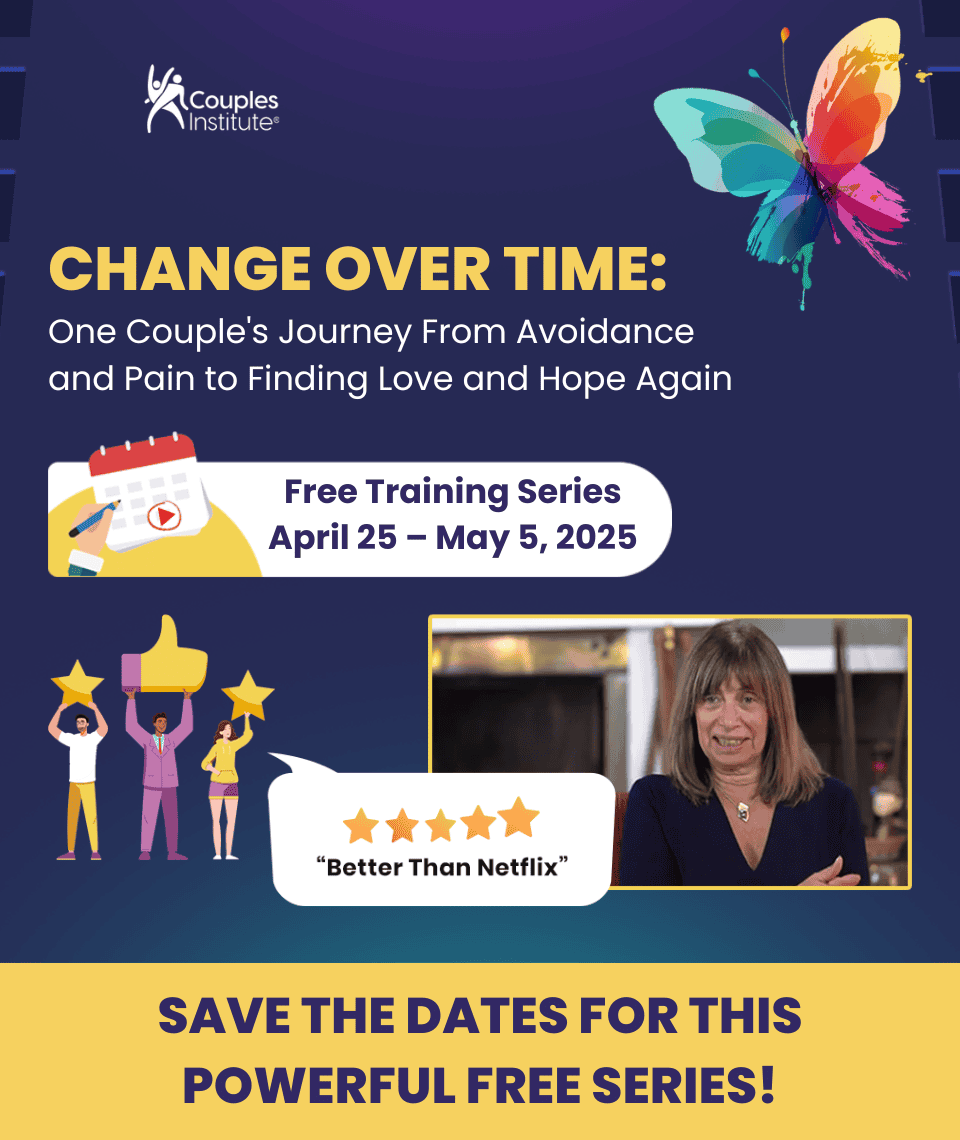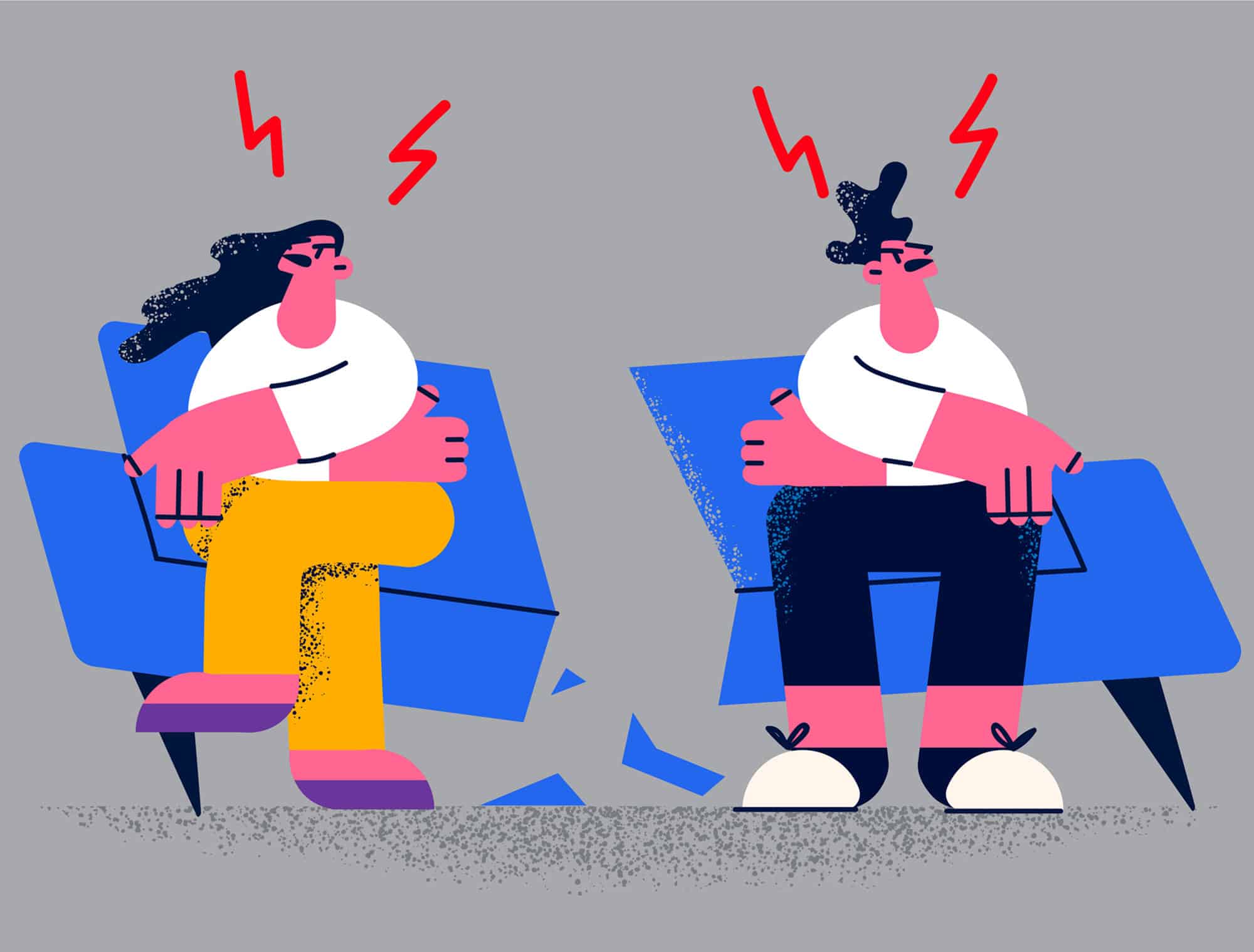What does it take to become really effective working with problems of infidelity?
This fall my brain has been in conference teaching mode. Pete and I recently returned from the Imago Conference in Vancouver, Canada. We really enjoyed our time interacting with the International Imago community and especially a dialogue we had with Harville Hendrix and Helen Hunt-Hendrix after our keynote talk. A hot topic was how soon to ask a couple to begin interacting with each other vs the therapist maintaining more control by talking individually with each partner.
And, now with the Infidelity Conference only 9 days away that topic remains particularly relevant. What does it really take for a therapist to work well with couples after infidelity has been revealed? Are there special skills that can be identified and taught?
Reflecting on that, Pete and I say yes, theory can be learned and interventions can be practiced. But also there is personal development and resilience in the therapist that is required.
I remember my first experience seeing a couple dealing with infidelity. The wife was enraged and obsessing about every detail. I was young, not married yet, and inexperienced with couples. All I could think every time I saw them was, “Am I up for this? Shouldn’t they be seeing someone older and wiser than I am?” And in retrospect, someone who had more of the personal/emotional development in our continuum below probably would have served them better.
I’d like to share with you our initial thoughts about the capacities of personal development for therapists and hope you will add your experience and brainstorm along with us.
- Tolerates intense interactions in the office without intervening when it is mostly to calm self.
- Manages own anxiety and takes charge in an active way, providing leadership.
- Recognizes how personal experiences with infidelity in our own lives may impact our interventions with a particular couple. Is not afraid to address this squarely with self.
- Recognizes own moral judgments and manages those without imposing them on the partners.
- Identifies and recognizes intense emotional ambiguities.
- Elicits expression of complex feelings and does not put pressure on partners to prematurely resolve these feelings by finding a black or white solution. Is able to resist the call for too rapid resolution.
- Resists the urge to insist that terminating the affair is a requirement for therapy to take place. If the “betrayer” lies to the spouse, they will lie to you and feel even worse about the therapy because of their increasing amount of deception.
- Holds two realities: that of each partner. Facilitates a deep understanding of each partner’s understandable reality.
- And finally, is not afraid to get consultation or make a referral if a particular couple is too tough or is triggering too many of our own issues. This is not failure or inadequacy. It is honestly acknowledging our own limitations!
So, what do you think? What did we forget? Also, we welcome personal stories of your own evolution through the quagmire of becoming an exceptional therapist for couples with Infidelity.
I’ll share more next month from my experience at the Infidelity Conference. Better yet, click the link to learn more and come to the conference if you’re in the area.
We help couples struggling with infidelity in Menlo Park, San Francisco, San Mateo, Redwood City, San Jose, Campbell and the surrounding areas.



 We respect your privacy.
We respect your privacy.




I have found working with infidelity with couples that the process involves several stages of work that cannot be rushed and that each partner has their own painful work to work through which requires a lot of energy for the therapist to support each partner. The therapist has to practice self-care to maintain their own energy to be “present” in the room while the couple has so much intense pain, anxiety, and hurt.
I will be at the Infidelity Conference next weekend which I m looking forward to hearing you both talk about this topic.
Perhaps to add to #1 above, “tolerating” the intense emotional expressions involves being able to be with these expressions in a constructive way. Not numbing out; and having the strength and clarity to intervene and guide these intense expressions in a fruitful way. That can take a lot of inner fortitude, in the presence of what can at times look like full blown paranoia and rage.
Not being afraid of the intense emotion and conflict as already mentioned but also being able to think differently about what the affair might mean and what sorts of conversations might help the couple. Being able to look at process without getting too bogged down in content as well as having compassion for both parties and remaining neutral.
#8 suggests holding both realities…without judging either person or showing any favoritism. This takes practice on the part of the therapist. At a Camft Conf one speaker indicated that the problem goes deeper than the surface symptom of the affair. I tend to agree with that philosophy. Interesting and provoking thoughts. Thanks.
In addition to Ellyn’s list of therapist capacities and the 2 previous comments, I’d like to add that we also need to find out from each partner:
-what the affair symbolizes
-exploration of what explicit or implicit contract the partners had regarding monogamy
-whether it’s a bid for differentiation (albeit unskillful) on the part of the one who broke the contract, and a stimulus for differentiation on the part of the one who maintained the contract
-what intimacy needs and sexual desires are perhaps not being met within the relationship
-discussion of how “age appropriate and/or realistic” those needs and desires are
-exploring how and whether they can discuss desires and their intimate life
– helping them to have discussions about desires and their intimate life
Thank you for posting on this topic Ellyn. I wish I could be present at the Infidelity Conference and look forward to reading your experiences there.
Vivian.
Vivian. Margie and Jean-Thanks for furthering the dialogue. As Vivian describes, talking about intimate desires is very difficult. Often in an affair those desires are met without effort-making the affair partner even more desirable and compelling.
I think it is extremely important for the therapist to create a safe environment in the session for the couple to explore what has happened to their relationship. As a therapist we need to be able to hold the couples intense emotions of betrayal, guilt, helplessness, inability to trust, support them to sit with their own emotional vulnerability to discuss couple emotional intimacy and what might be missing for both of them in their relationship. When the betrayed partner is overcome with anger and hurt often wonder is it best for some individual work to process these emotions before starting couple work?
I agree, an affair is symbolic of a relationship that has not been meeting the needs of either one or both and this crisis in the relationship brings the ‘unspoken unhappiness’ to a head.